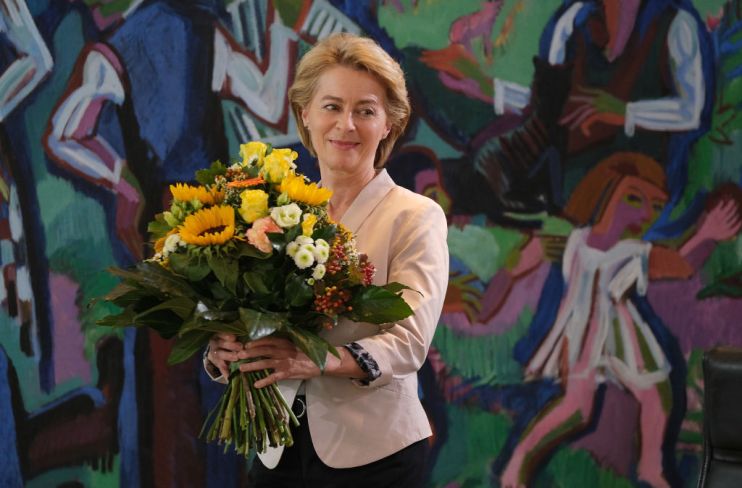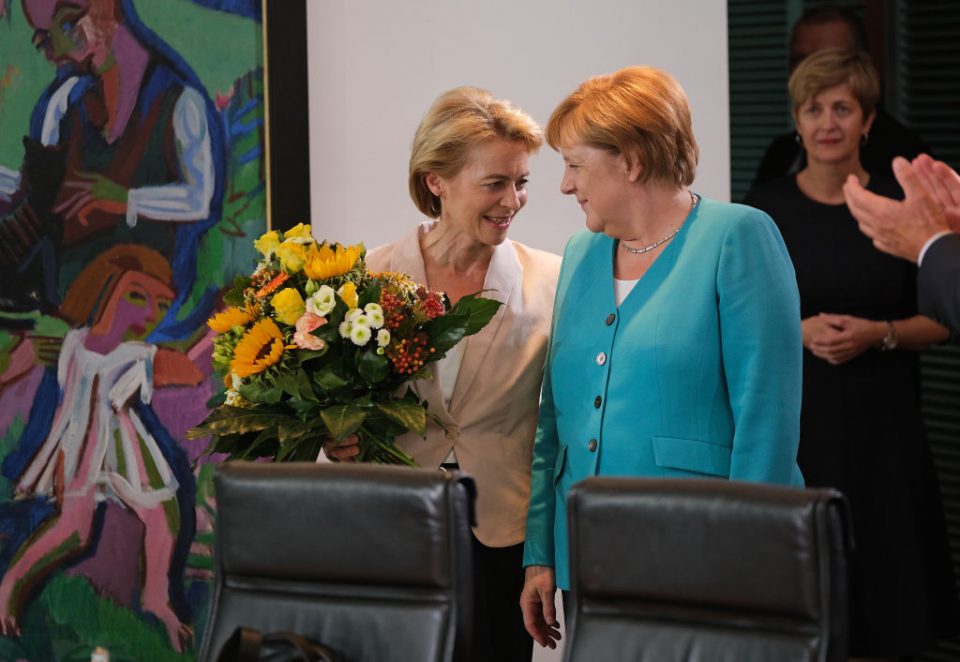Ursula von der Leyen: What kind of EU leader can the UK expect?

After months of deliberation, the EU parliament has now elected a new successor to Jean-Claude Juncker, the larger than life head of the EU Commission who has been navigating Brexit’s choppy waters since 2016.
Ursula von der Leyen, a former German defence minister and key ally of Angela Merkel, will soon lead the Brexit negotiations from Brussels along with Charles Michel, the president-elect of the European Council, and Michel Barnier, the EU’s chief Brexit negotiator.
Read more: Ursula von der Leyen gets top job at European Commission
Von der Leyen, the first woman to lead the EU Commission, may not have taken up her post yet (she will officially start on 31 October) but her appointment is already raising questions about what it could mean for Britain.
What is her stance on Brexit?
The public statements von der Leyen has made about Brexit have been limited to two things: a potential Brexit delay, and the backstop. While Juncker remains in post, his successor may not want to show her cards too readily.
On the delay, von der Leyen has said she would be willing to grant Britain an extension to the 31 October deadline negotiated by Theresa May after she failed to get her Brexit deal through parliament for the third time.
But Boris Johnson, who in all likelihood will be confirmed as Britain’s next Prime Minister next week, has repeatedly said he will take the UK out of the EU “come what may”, with or without a deal, by Halloween.
By showing her willingness to countenance a delay she will be able to claim that the responsibility of a no-deal Brexit lies squarely with the new occupant of No.10.
On the backstop, the Commission-elect has defended its place in the withdrawal agreement, putting her at odds with Johnson and his rival Jeremy Hunt, who have both said it needs to go.

How is she viewed by Brexiters?
One former Cabinet minister and Brexiter said she was at the “better” and “more helpful” end of the scale for the UK, on the grounds that Germany is the EU member state most afraid of no deal.
“There is a faction in Brussels that would like a punishment outcome. This will mitigate that problem,” they said.
“That being said, who knows how good she will be at managing the herd of cats that is the Commission.”
One Brexit Party MEP said the most controversial thing about her appointment was not her stance on Brexit (“whoever is in charge is going to be a fanatic about the EU”) but the way she was elected.
Von der Leyen received 383 out of 733 votes in a secret ballot of MEPs. She needed 374 votes out of 747 to get elected.
Read more: Ursula von der Leyen says the EU is open to another Brexit delay
The EU’s decision to drop its usual “Spitzenkandidat” system, whereby the lead candidate of the European political party that secured the most seats in EU parliamentary elections wins the top job, led some MEPs to believe her appointment had not been democratic.
“It was a veto vote,” the Brexit Party MEP said. ” It just proves to us why we are leaving.”
The MEP said she was already being viewed as the “Theresa May of the European Union”. “She talks about her family a lot, and I guess that is to make up for the fact that she does appear to be incredibly robotic.”
At the other end of the spectrum, one Lib Dem MEP said von der Leyen “does not stand fools gladly”.
“It is crucial that our next Prime Minister takes his responsibility to the future prosperity of the United Kingdom seriously by working with the EU.”
They added that any Brexit extension von der Leyen may grant should be to secure a second referendum.
Read more: Boris Johnson considering suspending parliament to force through a no-deal Brexit
The UK might therefore expect more of the same united front that has been presented by the EU from Ursula von der Leyen.
What will really change the tone of Brexit is having a UK Prime Minister that is willing to take the UK out of the EU without a deal, which, with Boris Johnson, looks a very real prospect.